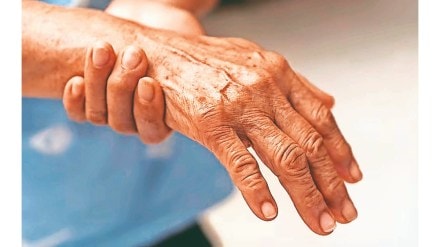As Guillain-Barre Syndrome (GBS) cases rise, so does the social media buzz. Many theories are being floated on the dos and don’ts, which people are likely to believe. One such is avoiding meat. So, is there any truth to social media claims about avoiding meat to prevent GBS? Dr Jatin Ahuja, senior consultant, infectious disease, Indraprastha Apollo Hospitals, says: “There is no strong scientific evidence linking the consumption of meat directly to Guillain-Barré Syndrome (GBS). However, GBS has been associated with bacterial infections, particularly Campylobacter jejuni, which can be found in undercooked poultry.
While the risk of developing GBS from contaminated food is very low, foodborne infections can sometimes trigger autoimmune responses, including GBS. Consuming well-cooked meat and maintaining good hygiene practices, such as washing hands and avoiding cross-contamination, can help prevent infections that may be linked to the condition. Social media warnings about meat may be oversimplifying the issue, as GBS can also develop following respiratory or gastrointestinal infections, vaccinations, or other immune system triggers. Instead of avoiding meat entirely, individuals should focus on safe food handling and preparation to reduce infection risks.”
What precautions can be taken to prevent contracting GBS?
Since GBS is often triggered by infections, preventive measures focus on reducing the risk of bacterial and viral infections. Practicing good hygiene, such as frequent handwashing and proper food handling, can help prevent infections. Getting vaccinated against flu and other viruses can also reduce the risk of developing GBS, though in rare cases, vaccines themselves have been associated with the syndrome. Individuals should seek immediate medical attention if they experience prolonged diarrhea or respiratory infections, as early treatment of infections may lower the risk of complications. People with a history of GBS should consult their doctor before receiving vaccines or other immune-triggering treatments. Maintaining overall good health through a balanced diet, regular exercise, and a strong immune system may help reduce vulnerability to infections that could potentially trigger GBS.
What are the risk factors for GBS?
The exact cause of Guillain-Barré Syndrome is unknown, but several factors can increase the risk of developing it. The most common trigger is a preceding infection, such as Campylobacter jejuni food poisoning, respiratory infections, or influenza. Other viral infections, including Epstein-Barr virus, cytomegalovirus, and even COVID-19, have been linked to GBS. In rare cases, vaccinations or surgical procedures may act as triggers, though the benefits of vaccines generally outweigh the risks. People with autoimmune disorders may be at a slightly higher risk of developing GBS, as their immune system is more prone to misfiring. While GBS can affect individuals of any age, it is more common in adults over 50 years old. Males tend to be affected slightly more than females. Although these risk factors increase the chances of developing GBS, the syndrome remains rare, and most people exposed to these triggers do not develop it.
What is the cure for GBS, and in what conditions does it become deadly?
There is no absolute cure for Guillain-Barré Syndrome, but early medical intervention can significantly improve recovery. Treatments include intravenous immunoglobulin (IVIG) therapy, which helps regulate the immune response, and plasma exchange (plasmapheresis), which removes harmful antibodies from the blood. Supportive care, including respiratory assistance, physical therapy, and pain management, is essential for recovery. While most people recover within months to a few years, severe cases can lead to prolonged paralysis or nerve damage. GBS can become life-threatening if it affects the respiratory muscles, leading to breathing difficulties and requiring mechanical ventilation. Other complications, such as blood pressure fluctuations, heart rhythm abnormalities, and infections due to immobility, can also be fatal if not managed promptly. Early diagnosis and intensive care can greatly reduce the risk of fatality, with most patients regaining mobility and leading normal lives post-recovery.
